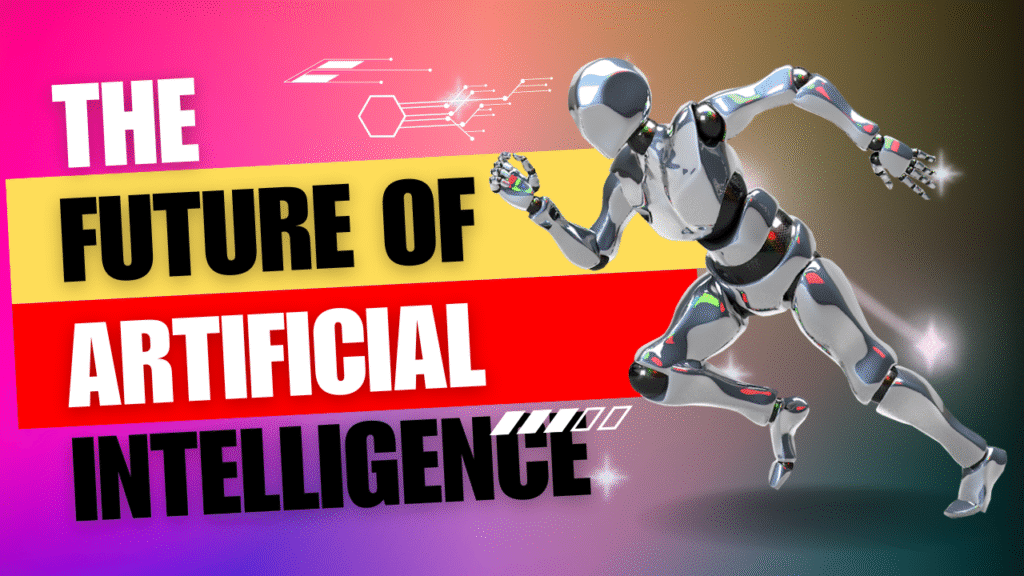
The Future of Artificial Intelligence:
Artificial Intelligence( AI) is no longer a generality of the future — it’s a present- day force converting how Americans live, work, and suppose. From virtual assistants to tone- driving motorcars, AI is bedded in industriousness across the United States. But what does the future hold for this important technology in America? In this composition, we explore the projected growth, pivotal sectors impacted, ethical enterprises, nonsupervisory challenges, and the openings AI presents for the nation. AI Growth in the United States The numbers Speak AI handover in the U.S. is accelerating swiftly. According to a 2025 report by McKinsey, over 70 of American companies are laboriously administering AI tools in at least one area of their operations. The U.S. is also the global leader in AI adventure capital investment, with startups entering billions in backing annually. pivotal drivers of AI growth include pall computing structure( Amazon AWS, Microsoft Azure) Strong university disquisition programs( MIT, Stanford, Carnegie Mellon) The presence of tech elephants like Google, Apple, Meta, and OpenAI The U.S. government is also supporting AI invention through enterprise like the public AI Research Resource Task Force and the AI Bill of Rights Blueprint. industriousness Being converted by AI
1. Healthcare AI is revolutionizing American healthcare with predictive diagnostics, robotic surgery, and substantiated treatment plans. Tools like IBM Watson and AI- enabled imaging platforms are helping croakers descry conditions like cancer at earlier stages.
2. Transportation Companies analogous as Tesla, Waymo, and passage are investing heavily in independent driving. AI systems process real- time data from sensors, enabling safer and further effective driving — a trend anticipated to reshape swapping in communal America.
3. Finance AI is converting banking and finance by automating fraud discovery, personalizing customer service, and streamlining loan blessings. Algorithms can anatomize spending behavior and descry anomalies in seconds.
4. Education In seminaries and universities, AI tools like ChatGPT are being used for training, grading, and substantiated knowledge. Adaptive knowledge platforms are making education more accessible and effective for American scholars.
Job Creation vs. Job disturbance A Double- Edged Sword One of the biggest debates girding AI in America is its impact on jobs. While automation may replace repetitive places, it’s also anticipated to produce millions of new jobs, especially in tech, cybersecurity, data wisdom, and AI ethics.
The U.S. Department of Labor predicts that places like AI specialists, prompt engineers, and machine knowledge engineers will see massive growth by 2030. To prepare, educational institutions and companies are investing in reskilling and upskilling programs to equip Americans for the AI- driven economy. Ethical and Social enterprises With great power comes great responsibility. As AI systems make opinions that affect people’s lives — analogous as hiring, credit blessings, or parole opinions enterprises around bias, fairness, and responsibility are growing.
For case Facial recognition technologies have been criticized for racial bias. AI- predicated hiring tools can unintentionally distinguish predicated on gender or background. Deepfakes and misinformation are risks to democracy and digital trust. These issues have sparked civil exchanges about AI ethics, translucence, and responsibility.
The part of U.S. Government and Regulation:
The U.S. government is taking way to produce a balanced AI nonsupervisory frame that promotes invention while guarding citizens’ rights. pivotal developments include AI Bill of Rights Blueprint( 2022) A frame outlining Americans’ rights in an AI- powered society. executive Order on AI( 2023) Calling safety morals and translucence for civil AI use. State- position enterprise California, New York, and Massachusetts are introducing original AI laws. still, the U.S. still lacks a comprehensive civil AI law, unlike the EU’s AI Act. The coming times will presumably bring new legislation and oversight bodies to address these gaps.
America’s Global AI Leadership:
A Strategic Imperative AI is n’t just a technological challenge it’s a geopolitical bone The U.S. is in a strategic race with China and other nations to lead in AI development. Leadership in AI is seen as essential for public security profitable competitiveness Technological sovereignty Public-private alliances, increased defense AI backing, and international collaborations are helping America maintain its edge. Challenges to Overcome Despite its strengths, the U.S. faces several hurdles gift deficiency There is a growing gap in AI- professed professionals. Data insulation enterprises over how particular data is used and stored. Misinformation AI- generated content can spread fake news at scale. structure difference pastoral areas may warrant access to AI- driven resources. Addressing these issues will be vital to icing that the benefits of AI reach all Americans.
Conclusion:
A Future of Possibility — If Managed Wisely The future of artificial intelligence in America holds immense pledge — from profitable growth and bettered healthcare to smarter cosmopolises and enhanced public defense. But with that pledge comes responsibility. The U.S. must Invest in ethical, transparent AI development produce fair programs and regulations Educate and prepare its pool for a new AI period By striking the right balance between invention and regulation, automation and employment, and progress and ethics, America can lead the world into a future where AI serves humanity — not the other way around.